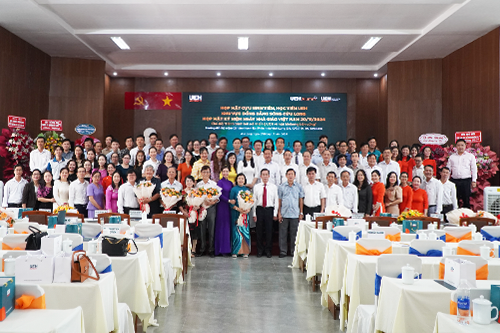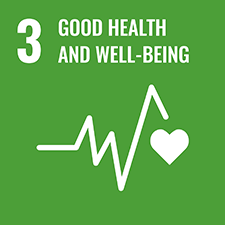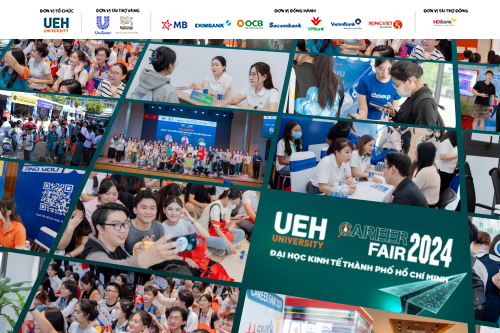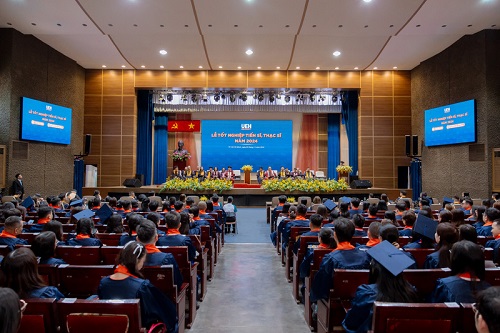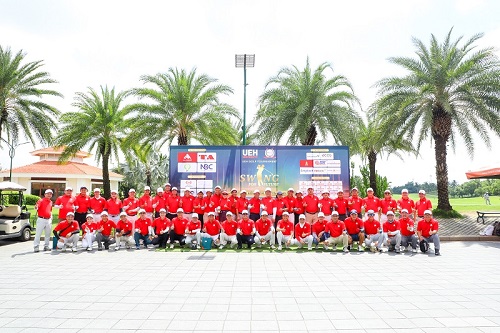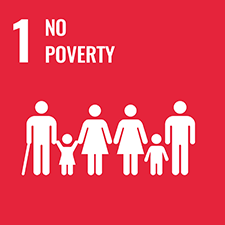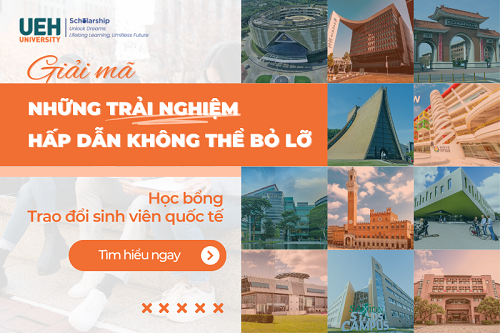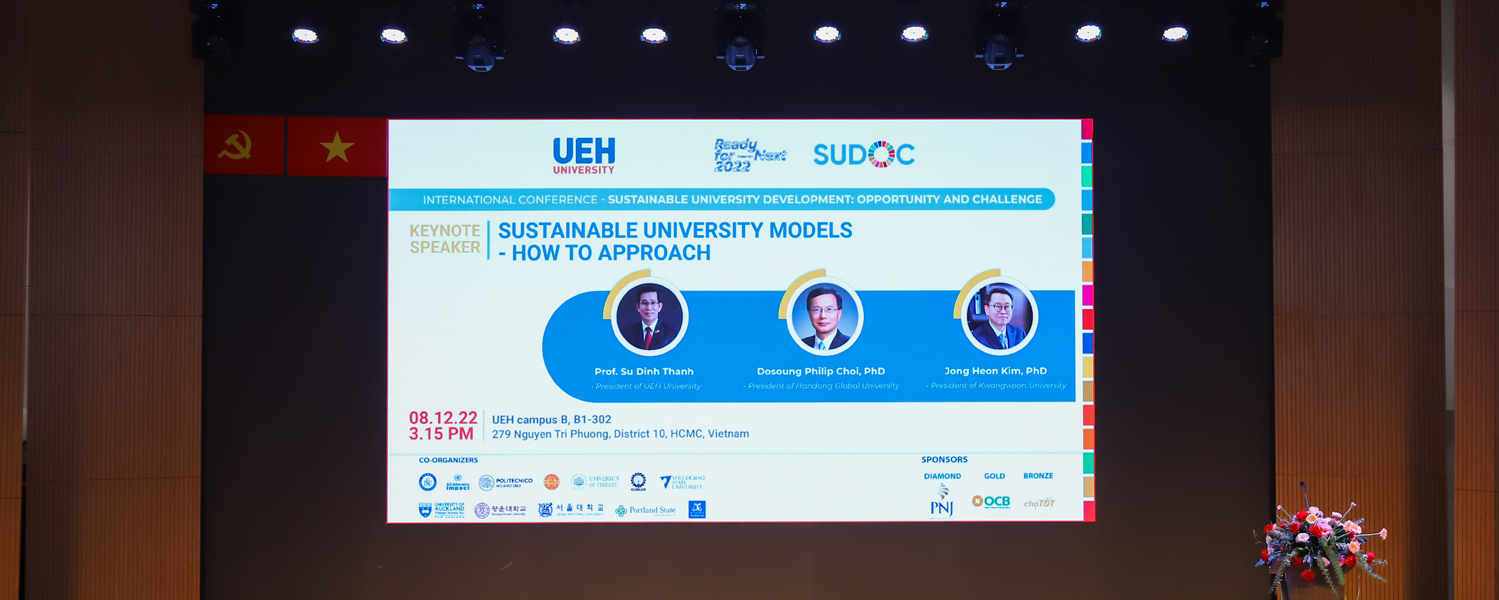
A special discussion session with three presidents of leading universities on the Sustainable University Model, an approach from the whole to details
21 Dec, 2022
The event series Ready for Next 2022, with the theme "Ready to transform for the sustainable development of the community" organized by University of Economics Ho Chi Minh City (UEH) in collaboration with more than 13 domestic and international partners and educational institutions took place successfully with proud academic marks, in which, three presidents including Professor Dr. Su Dinh Thanh - President of UEH, Dr. Dosoung Philip Choi - President of Handong International University (Korea) and Dr. Jong Heon Kim - President of Kwangwoon University (Korea) had a session to share different approaches in the process of promoting the sustainable university development model from the perspective of research as well as practice from their own university's experience.
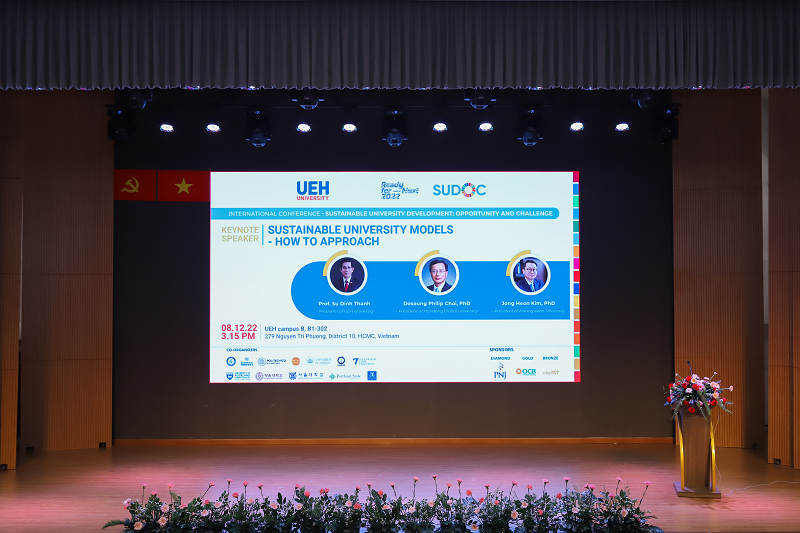
Approach to a comprehensive sustainable university from the University of Economics Ho Chi Minh City
At the beginning of the discussion session, Professor Dr. Su Dinh Thanh - President of UEH, shared about the sustainable development model that the University of Economics Ho Chi Minh City - UEH has been pursuing. In fact, when compared with aspects of a sustainable university, UEH has really developed sustainably over the past 46 years. Especially in 2020, UEH's autonomy mechanism was allowed by the Ministry of Education and Training of Vietnam to create favorable conditions for the school to develop in many aspects: Training, research, and international publication towards the development of high-quality human resources of Ho Chi Minh City, the Mekong Delta region, be a key national university. With the proper steps from the beginning, UEH is constantly growing stronger towards a sustainable future by declaring the Multidisciplinary and Sustainable University Strategy in 2021.
“For a more sustainable future, we recognize the role of the school in training generations of learners, officials, and employees to act for sustainable development, influence this culture, and spread optimism to the community. Our sustainable development model has integrated sustainability into 02 basic functions: Education, Research, and three extended functions: Governance, Operations, and Community Connection.”
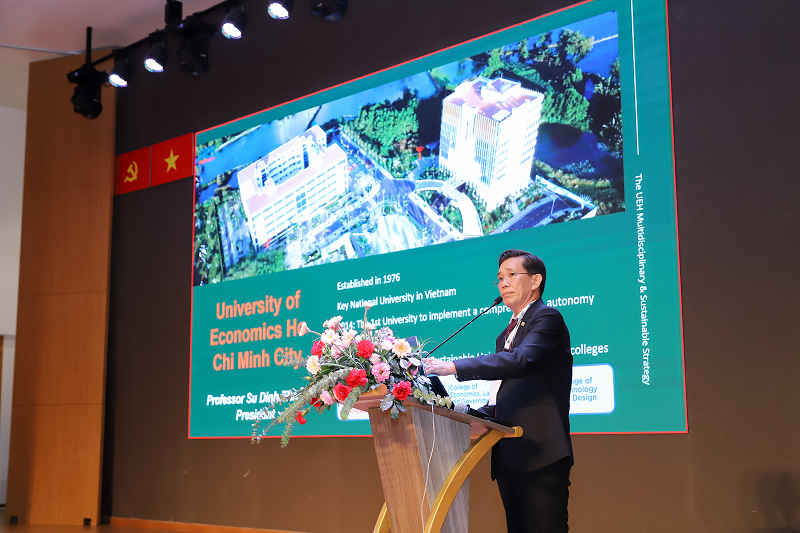
Specifically, the President of UEH shared each of the basic functions of a sustainable university, including:
1. Governance is the driving force of system transformation: Governance demonstrates the commitment and determination of the school's leadership when implementing sustainable policies and initiatives. This commitment is reflected in the approach, methods, solutions, and operating mechanism of the whole system, encouraging all school members to act together for sustainability.
2. Education and training: Integrating and implementing Multidisciplinary and Sustainable training modules into formal and extra-curricular training programs.
3. Research: Promoting multidisciplinary, interdisciplinary, and transdisciplinary research; promoting research on sustainable development, 17 SDGs launched by the United Nations; conducting research related to UEH's own, local and national issues; creating programs, policies, and mechanisms to transfer research results to the community.
4. Community: Redefining the concept of “Community” from the perspective of a sustainable university. At that time, the Community is all individuals and organizations (under UEH or not under UEH) with the same mission of acting for sustainable development. Community connection programs will take the 05 elements of a sustainable university as a guideline for development. In this way, sustainable action will gradually spread to a large community.
5. Operation: Viewing each UEH training facility as a “miniature city”, where sustainable development issues need to be addressed. This is a way to convey training theories, the role of scientific research, and practicing and solving it within the school itself. Sustainable practices at UEH campuses, including zero waste, reduced carbon emissions, a tobacco-free university, and balanced biodiversity.
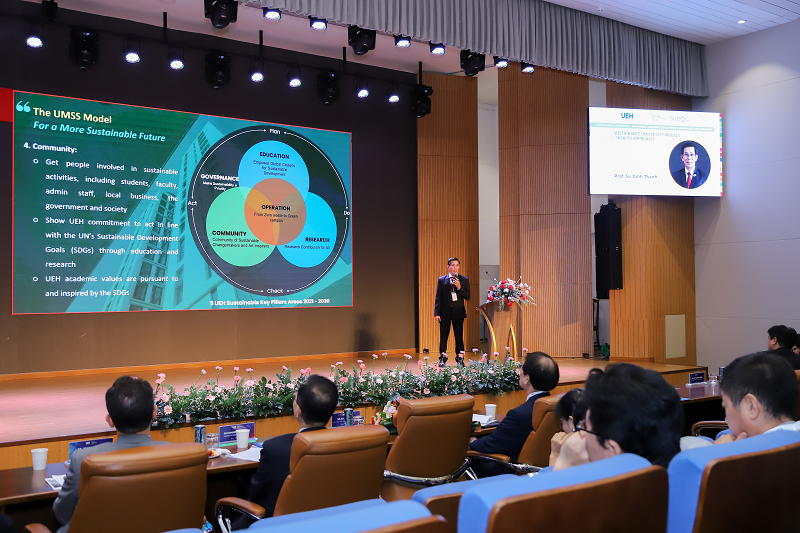
Professor Dr. Su Dinh Thanh - President of UEH shared about the sustainable university development model of the University of Economics Ho Chi Minh City
In the sharing, he also emphasized the applicability of the PDCA principle (Plan - Do - Check - Act) to be able to improve and optimize every day to find the most suitable sustainable development model for specific characteristics of each higher education institution.
Digital Transformation in Education – Approaching from the Training Pillar of Handong Global University's Sustainable Development Strategy
Following was the speech of Dr. Dosoung Philip Choi - President of Handong Global University with the theme "High Touch in the Era of High-Tech Education"
He emphasized the role of technology in modern education. This role is even more important in today's hyper-fast, hyper-connected environment: “Information technology in higher education is really necessary for modern education. Higher education plays a key role in a country's economic, cultural, and human development. The world is constantly changing, and so is education. It is necessary to have access to technology, applying technology to teaching to diversify training models of higher education is one of the sustainable approaches”.
There are four future trends in Education and Training that can be identified: First, learning from anywhere; Second, replacing teachers with self-study models; Third, teaching skills are suitable for the trend of changing the world; Fourth, using professional assessment models, rather than midterm and final exams.
In this way, learners can completely break away from traditional learning methods attached to the classroom, with the tendency to learn anytime, anywhere. And in this way, learners can access lifelong learning and become global learners.
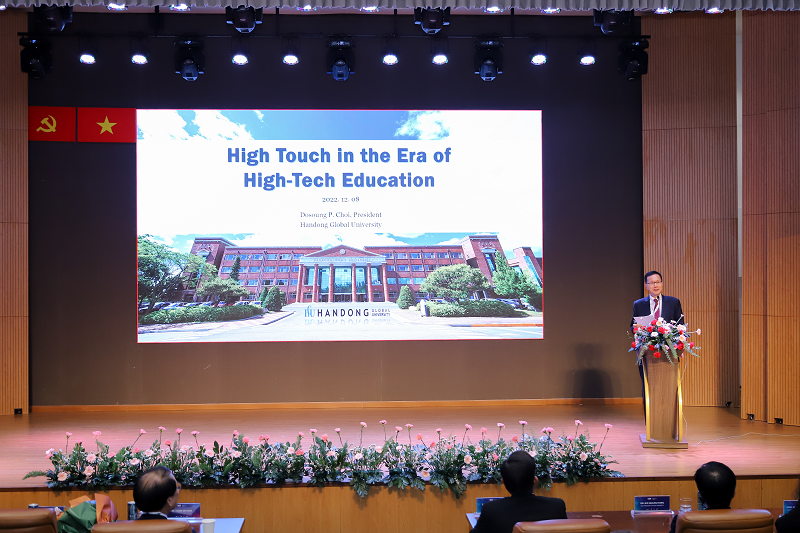
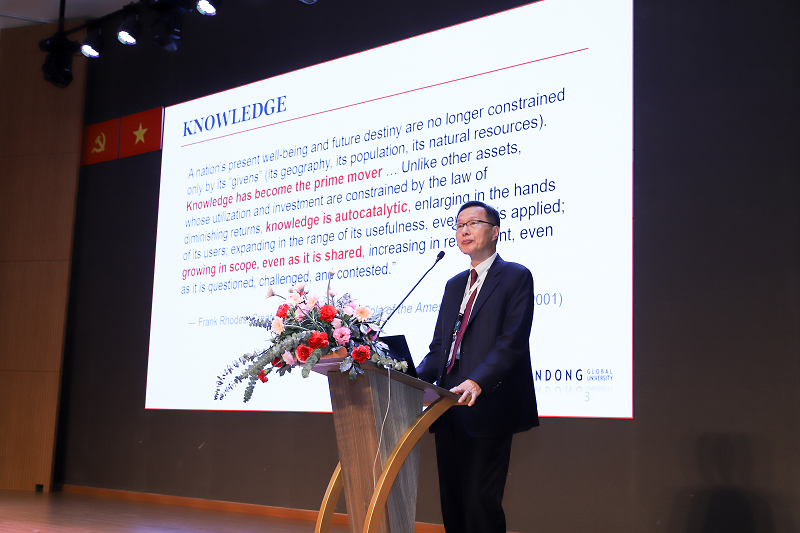
Dr. Dosoung Philip Choi - President of Handong Global University with the theme "High Touch in the Era of High-Tech Education"
Integrating environmental governance into governance and sustainable university operation: A perspective from Kwangwoon University (Korea)
Finally, Dr. Jong Heon Kim - President of Kwangwoon University, shared the topic "Campus Sustainability of KwangWoon University: Practices and Strategies", a sustainable university model at KwangWoon University with an integrated approach to environmental issues in policy implementation, management, and academic activities of the school. First is energy reuse; Second is to use energy efficiently and economically; Third is to install charging stations for environmentally friendly vehicles; Four is garbage collection and reuse systems; Five is the office's limited use of paper.
Kwang Woon University raised the question of creating a sustainable and successful university. Sustainable University is challenging because it requires the following factors: Consensus participation of all members of the School Board; Changing individual behaviors and lifestyles and the driving force behind this change.
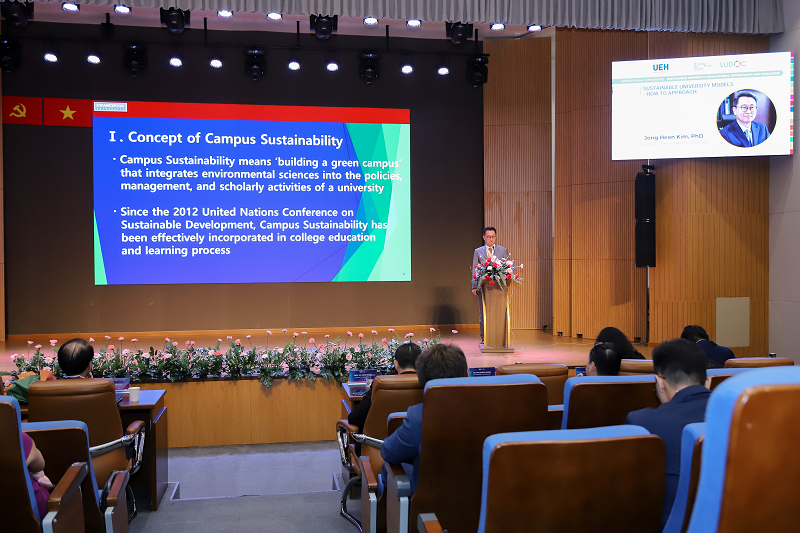
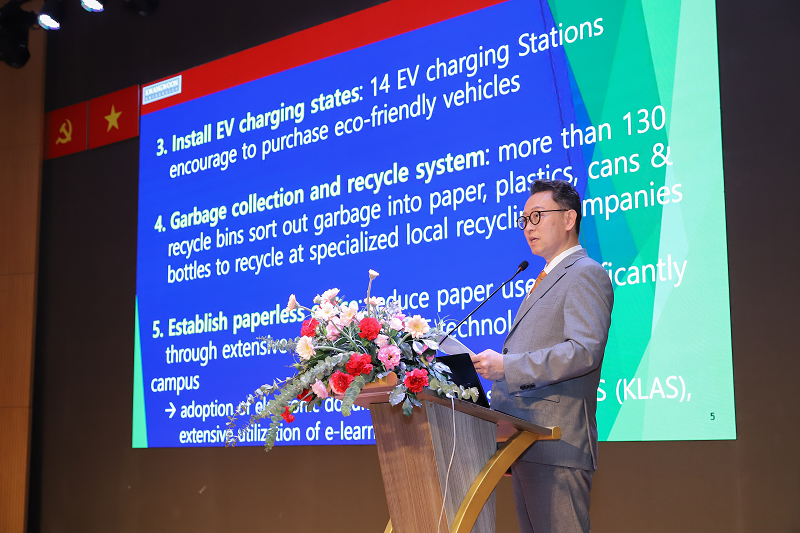
Dr. Jong Heon Kim - President of Kwangwoon University, shared the topic "Campus Sustainability of KwangWoon University: Practices and Strategies."
Sustainable university development is an inevitable trend, shared by 03 principals with three practical perspectives on sustainable university development, from the overall model to the detailed aspects, which has opened up more information. Many aspects of sustainable university development are worth referring to and learning from. These contributions will be a solid foundation for the International Conference "Sustainable University Development: Opportunities and Challenges" - SUDOC in the following years, a premise to contribute to the International Forum on Sustainability - IFS in the region, especially in developing countries that UEH was just established in December 2022, and make practical contributions to the sustainable development journey for the community in the future.
*SUDOC 2022 is an activity in the Ready for Next program series: UEH's series of programs to be ready for sustainable transformation for the community and society will take place from December 4 to 10, 2022. With the goal of positive values for the community, this is a series of multi-disciplinary, interdisciplinary, and transdisciplinary activities, focusing on connecting the fields of Technology for life, Technology towards smart cities, Technology combined Art, and Multidisciplinary Sustainability. Covered activities range from academics, exchange forums, community connection hubs to unique art-inspired activities such as exhibitions, fashion shows, and concerts.
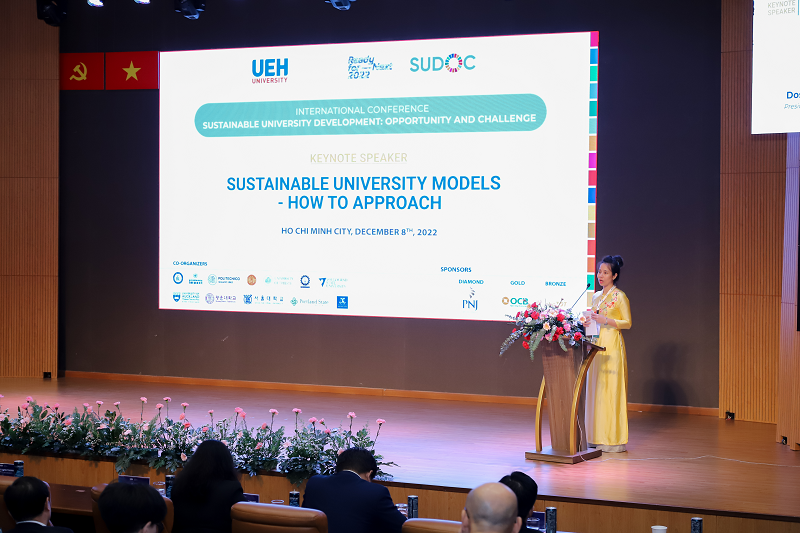
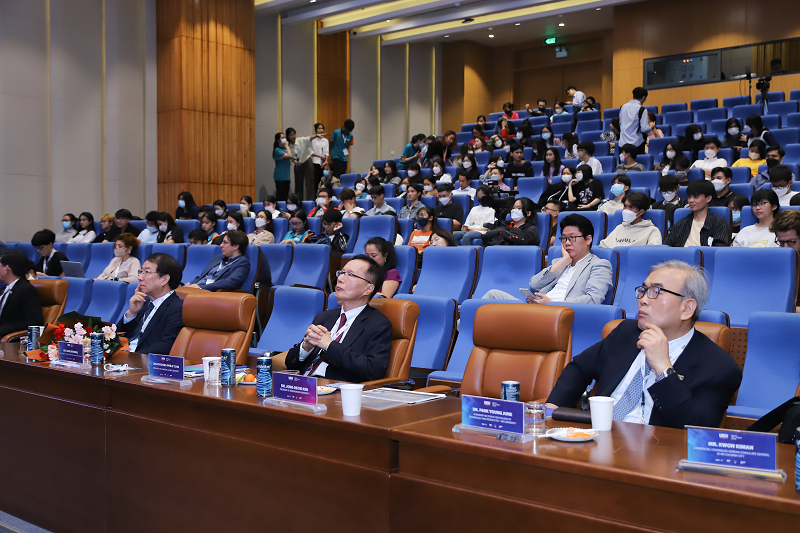
Overview of the three-president discussion session with the topic: Sustainable university models - How to approach.
News, photos: Department of Marketing and Communication, SUDOC Conference Organizing Committee

